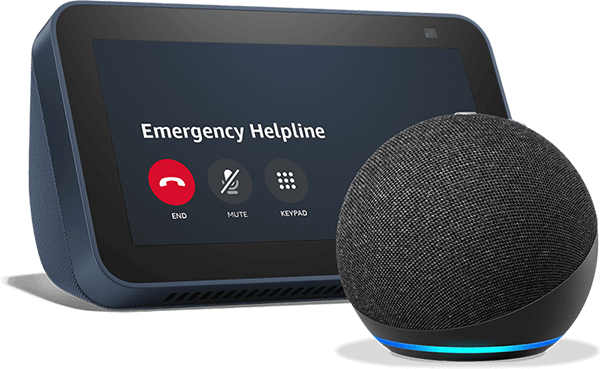
Nursing home care may be necessary if your parent can’t get the care they need in any other senior living setting. Paying for it can be challenging, though. Many people incorrectly assume that Medicare pays for long-term nursing home care, but it does not. Medicaid, however, is a type of insurance that can cover the cost of living in a nursing home if the individual financially qualifies and their care needs meet the requirements. Here, we’ll briefly explain Medicaid and then explore how Medicaid pays for nursing home care.
What is Medicaid?
Medicaid is a joint federal and state program that provides health care and long-term care services for people with low income. Each state decides how they administer Medicaid programs and what services they cover.
While the federal government sets guidelines for Medicaid, there is no uniform Medicaid qualification standard because each state facilitates its own program. Generally, though, an applicant’s countable assets cannot exceed $2,000. Countable assets may include checking and savings accounts, stocks and bonds, certificates of deposits, property that is not your primary residence, and additional motor vehicles besides your primary car.
Some nursing homes will admit people who are “Medicaid pending,” meaning they qualify for Medicaid and are awaiting formal acceptance. Other nursing homes require that you be officially accepted into Medicaid before admission.
What is a nursing home?
A nursing home is a long-term residential care facility that provides 24-hour personal care and nursing availability to its residents. These facilities offer a higher level of care than other senior living communities, like assisted living facilities. Though assisted living facilities can accommodate people with many medical conditions, a nursing home may be the only residential facility that can meet the needs of a person who needs IV medication or hydration, wound care, or other skilled nursing services.
The benefits of nursing home care come down to the level of care they provide, which no other type of long-term residential care facility can. Some examples of nursing home services are:
- • 24-hour nursing availability.
- • On-demand aide service to assist with activities of daily living.
- • Limited therapies under Medicaid, such as physical and occupational therapy.
- • All meals.
- • Medications.
- • Imaging services.
- • Hoyer devices for people who are bedbound.
- • IV administration of medications and hydration.
- • Wound care.
- • Respiratory services.
- • Social activities.
Residents must pay premium prices to access all these skilled care services, trained caregivers, and licensed professionals under one roof. The national median monthly price of a semiprivate nursing home room (meaning two residents share one room with a curtain separator, as you might see in a hospital) is $7,908; private rooms have a median monthly cost of $9,034. Luckily, many nursing homes accept Medicaid. Let’s take a look at the nursing home costs that Medicaid covers and how it works.
Does Medicaid pay for nursing home care?
Medicaid may pay for nursing home costs if the individual has no other financial options, meaning they meet the financial requirements to qualify for Medicaid. At that point, if the person lives in a nursing home that accepts Medicaid, many of their expenses may be covered.
Medicaid pays for almost all nursing home care costs in a Medicaid-certified nursing home except personal items. However, not everyone will be accepted into a nursing home. In addition to qualifying for Medicaid, the person must meet the need for a nursing home level of care (NHLC) or nursing facility level of care (NFLC). States use functional assessment tools to determine if a person needs a nursing facility’s level of care.
A nursing home completes an assessment of each person before admitting them under Medicaid. Considerations include level of functioning based on the ability to perform activities of daily living, hands-on requirements, behavioral issues, nursing and medical needs, and cognitive impairment.
Once accepted to a nursing home, the individual might receive some variability in services, but in general, nursing homes are designed to meet all the needs of the individual, including:
- • Room and board for a semi-private room.
- • Skilled nursing care for medical care, wound care, and medications.
- • Personal care services, including bathing, dressing, grooming, toileting, and supervised eating.
- • Physical therapy, occupational therapy, speech therapy, and respiratory services.
- • Medical supplies and equipment necessary for the individual’s care, such as wheelchairs, walkers, and wound care supplies.
- • Social services, including counseling, assistance with discharge planning, the admission process, and care coordination.
- • Dietary services.
- • Imaging services such as X-rays on-site.
Keep in mind that whether Medicaid will cover some of the above services varies.
If your loved one doesn’t qualify for Medicaid but the nursing home will accept them as a resident, they may need to cover the costs until they do qualify. Reducing one’s assets until they qualify for Medicaid is called Medicaid spend-down, which essentially means that a person pays for their medical costs until they spend down their assets to meet their state’s asset threshold.
Medicaid spend-down and other Medicaid planning strategies are complex, and you must approach them legally and appropriately. Not doing so can result in a Medicaid denial. If paying for a nursing home concerns you and you’re thinking about your loved one’s Medicaid eligibility, talk to an elder law attorney or a Medicaid attorney who can help you plan for this expense.
Nursing homes offer something no other setting does: round-the-clock supervision and care for someone with significant medical needs. If your loved one qualifies and has extensive care needs, Medicaid may pay for their nursing home care so you can be sure that they are safe and cared for.








